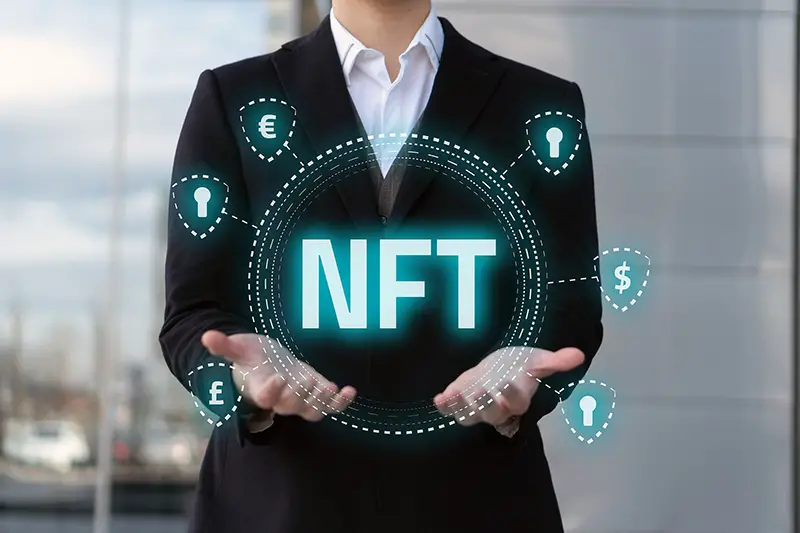Click here to get this post in PDF
Crypto technology has changed the world as we know it. From NFTs transforming the traditional gaming experience through to real-utilities crypto assets rewards that can be stored in a DeFi wallet, let’s evaluate some industries that have been affected by NFT developments being implemented.
DeFi and NFTs P2E (Play-to-Earn) incentives revolutionised the gaming experience
Pre-Crypto, Pay-to-Play was the traditional gaming norm. Developers created fun games and tie in-game micro-transactions with the games’ utilities. However, these games’ assets were useless outside of the games and had zero real-life value.
Until, Game-DeFi fusion, GameFi, incorporated tokenomics, fungible tokens, and NFT assets rewards into video gaming.
Avatars, weapons, and various in-game assets can now be stored in DeFi wallets. And transacted outside the game, creating more distributed revenue sharing for developers and players.
Now, provided your blockchain games are fun to play and you tie your P2E incentives to your game’s objectives, you can basically earn forever. Sadly, some current Blockchain games have wrongly discarded fun gaming experiences for P2E incentives.
Making your blockchain games fun to play before adding P2E incentives is your best bet to actively compete against future Blockchain games.
So, it’s little wonder why major gaming studios are rapidly transitioning into web 3.0. In comparison, big web2.0 studios who are wary of making substandard crypto games partner with smaller web3.0 gaming studios.
NFTs created a virtual-corporal real estate marriage
Incorporating NFTs in your real estate business involves tokenising landed assets and communities.
Through this, real estate businesses can make instant transactions, eliminating physical meet-ups and boring paperwork.
Businesses simply tokenise (as NFTs) and digitally sign the respective assets’ patents to transfer them to a new buyer. In turn, the buyer pays with crypto via a smart contract into their DeFi wallet.
In addition, DeFi and NFT refine fractional ownership of landed assets; where investors own different parts of the same property, say, a window, a room, furniture, etc.
Their respective metadata are minted into NFTs and issued accordingly. Immediately after the property is rented or purchased, the smart contract automatically distributes payment based on their respective investment percentage to their DeFi wallet.
Blockchain Could Make Schools and Job Search Fun
Imagine a world where your academic records are permanently recorded on a blockchain and can be accessed by you, your teachers, and recruiting officers.
A college admission will automatically issue you a blockchain space in a couple of years where they record your complete grading, class schedule, and biodata.
Plus, your instructors and teachers automatically get paid a percentage of their wages in cryptocurrency after completing a class, grading a test, etc.
Every academic paper you publish is also included.
When you complete the required course works, you automatically receive your diploma as an NFT. You also get your awards and badges as NFTs.
After graduation, you can simply grant your employers access to your academic experience blockchain records. This way, your claims have more credibility.
Plus, you can ditch CVs and application letters.
Tokenised Equity could be the new crowd-funding gold
ICO (Initial Coin Offerings) is the new crowd-funding gold. A company can sell its equity as tokens for crowd-funding.
Since traditional crowd-funding—Initial Public Offering—via the stock exchange involves expensive paperwork, businesses can issue digital tokens representing their stocks to investors instead.
Say a company creates 15,000,000 digital tokens representing 40% of its liquid equity. Buying 100,000 tokens equates to owning 0.27% of that company.
Though, ICOs and tokenised equity are still a work in progress. The future holds promise for the tokenisation of companies’ assets. Organisations could also sell staked percentages as NFTs and keep those secure with some of the best nft wallets available.
How ready are businesses for Web3.0 migration?
Tokenomics, both fungible and unique digital assets, sailed businesses through shockingly productive milestones with boosted transparency and fun buying and selling incentives. However, not every business needs a DeFi or NFT integration.
So, before migrating your business to the blockchain, confirm if:
- Your business would fare better with public data access.
- You would be better off with more validation sources.
- Multiple Decision makers would improve your performance.
DeFi has progressed through many trials and errors. Therefore, enjoy the ride while you always do your own research.
You may also like: 5 Reasons Why NFTs are Here to Stay
Image source: Shutterstock.com

